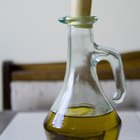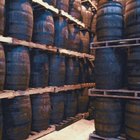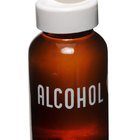Limoncello—that light, refreshing lemon-infused liquor from Southern Italy—is as easy to make as mixing the ingredients in a bottle and letting them steep on the kitchen counter. However, obtaining permission to distribute, sell or even produce limoncello in some regions is a serious matter. Limoncello can be every bit as potent and dangerous as other liquors; as a result, the individual who wants to make and distribute limoncello must follow a certain path of legal research and paperwork.
Decide which liquor will be the base for your homemade limoncello. Due to its relative absence of flavor, vodka is a highly popular liquor for limoncello production. Other stronger liquors may be used as well, such as grain alcohol.
Determine the liquor laws in your state or municipality. In some regions, it is illegal to produce your own alcoholic product, let alone sell it for any type of commercial gain. Additionally, the type of alcohol that you want to use may be illegal in your area—many states prohibit the sale of 190 proof (95 percent alcohol) products.
Decide which type of liquor license (if any) that you need to obtain. Different regions distinguish a variety of venues and purposes for alcohol production and distribution. If you do not want to sell your limoncello but want simply to produce it for yourself and family and friends, then, depending on local laws, you can probably either waive the necessity to obtain a license or apply for the simplest license that your local government permits.
Apply for the appropriate licenses and permits before beginning your limoncello production. Laws in your area might prohibit and even punish the production of alcoholic beverages before the proper permissions have been obtained.
Acquaint yourself with the laws of the regions and territories to which you might want to distribute your limoncello. If you used 190 proof alcohol, then it will likely be illegal to ship your limoncello to states where that particular product is illegal. Additionally, some states—such as Maryland, for example—do not allow their residents to purchase alcohol through the mail and via the Internet.
Related Articles

How to Make Homemade Beer Yeast

How to Obtain a North Carolina Liquor ...

How to Become a Tea Distributor

How to Make Homemade Liquid Rouge

Does Limoncello Liqueur Need to Be ...

How to Make Your Own Essential Oil ...

Different Types of Liquor Licenses
What Is the Difference Between 80 & 100 ...

Alcohol in Fermented Miso Paste

What Is the Highest Proof Vodka?

How to Bartend a Wedding

Organic Vs. Conventional Olive Oil

Can Drinking Old Vodka Hurt You?

What Is a Substitute for Cherry Liqueur?

The Difference Between Single Cask & ...

German Beer Vs. American Beer

How Long Can a Bottle of Vodka Last ...

How to Make Organic Raw Kombucha

How to Make Alcohol at Home

How to Store Rubbing Alcohol
Writer Bio
Sam Bresson has been writing on a variety of subjects for over ten years. His writing philosophy stems from a desire to learn as much as possible about life and living, then expressing his experience to readers. Sam holds a bachelor’s degree in anthropology.